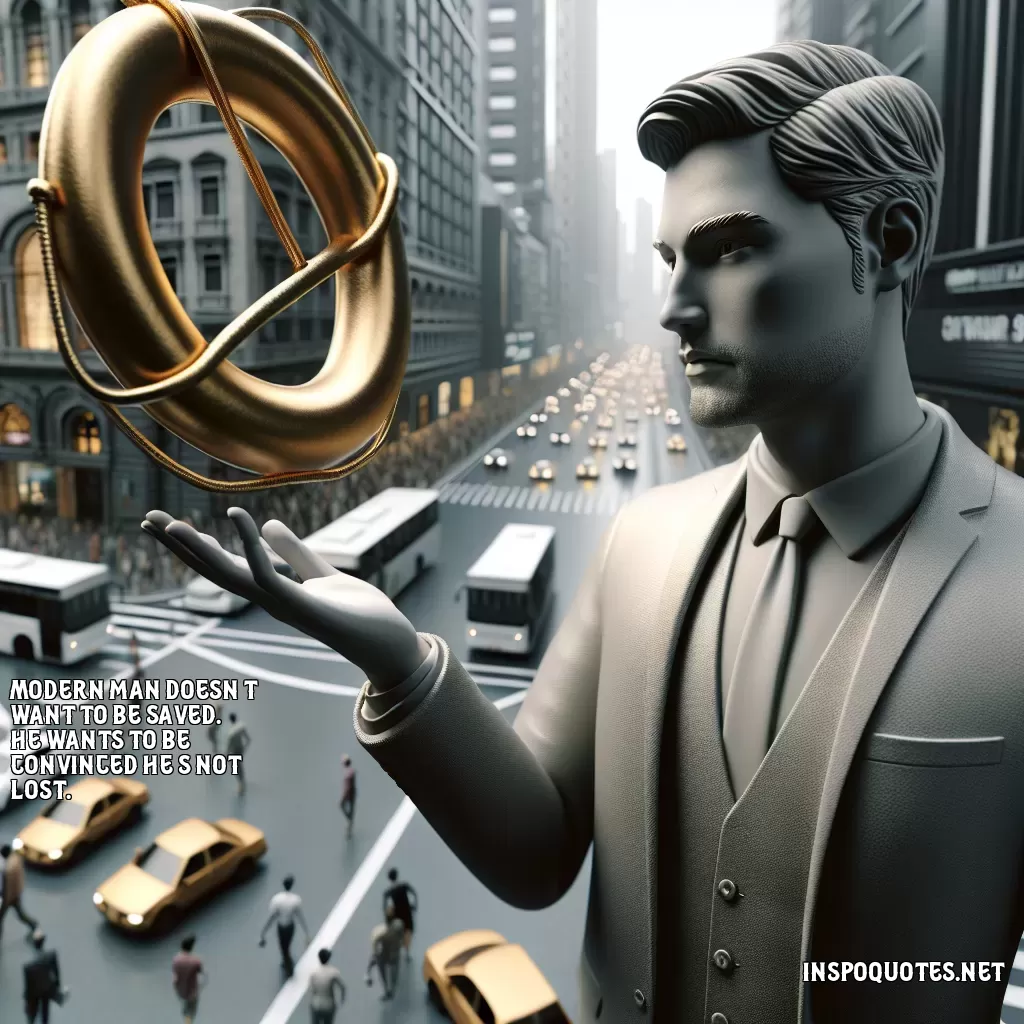
Modern man doesn’t want to be saved. He wants to be convinced he’s not lost.
Author: David Foster Wallace
👁️ 4 views

Modern man doesn’t want to be saved. He wants to be convinced he’s not lost.
👁️ 4 views
This quote reflects a deep commentary on contemporary human nature and the existential challenges faced by individuals in today's world. The phrase "modern man doesn’t want to be saved" implies that people in the modern era are often not seeking traditional forms of salvation or redemption, such as those offered by religious faiths or moral philosophies. Instead, they are more concerned with reaffirming their personal beliefs and validating their current paths. This points to a potential drift away from spiritually or morally driven lives, where salvation is a key focus, towards a more self-centered existence that prioritizes individual autonomy and self-definition. The second part of the quote, "He wants to be convinced he’s not lost," suggests that rather than seeking transformative change, modern individuals are more interested in being reassured that their current way of life is acceptable and correct. It highlights a desire for validation over transformation. In contemporary society, people often face a barrage of choices, ideologies, and lifestyles, which can lead to existential uncertainty and a sense of being 'lost.' Rather than admitting this sense and seeking a form of existential or spiritual salvation, many prefer the comfort of external validation that their path, however aimless it might seem, is purposeful. The quote challenges readers to reflect on their own lives and consider whether they are genuinely seeking understanding and meaning or merely looking for affirmation that their present state is adequate. It suggests a deeper need for introspection and a questioning of whether the dislike of feeling 'lost' is preventing true growth and change. This perspective invites a broader dialogue on the purpose-driven versus validation-seeking motivations in modern life, as well as the impact of cultural factors that encourage conformity over questioning and growth.
Quote By: David Foster Wallace
David Foster Wallace was an American novelist, essayist, and short story writer, born on February 21, 1962, in Ithaca, New York. He is best known for his monumental work "Infinite Jest," published in 1996, which explores themes of addiction, entertainment, and the complexities of modern life. Wallace's distinctive style, characterized by intricate narratives and footnotes, has left a lasting impact on contemporary literature, while his struggle with depression ultimately culminated in his tragic death in 2008.
Bio added on: 2025-02-17 20:22:26